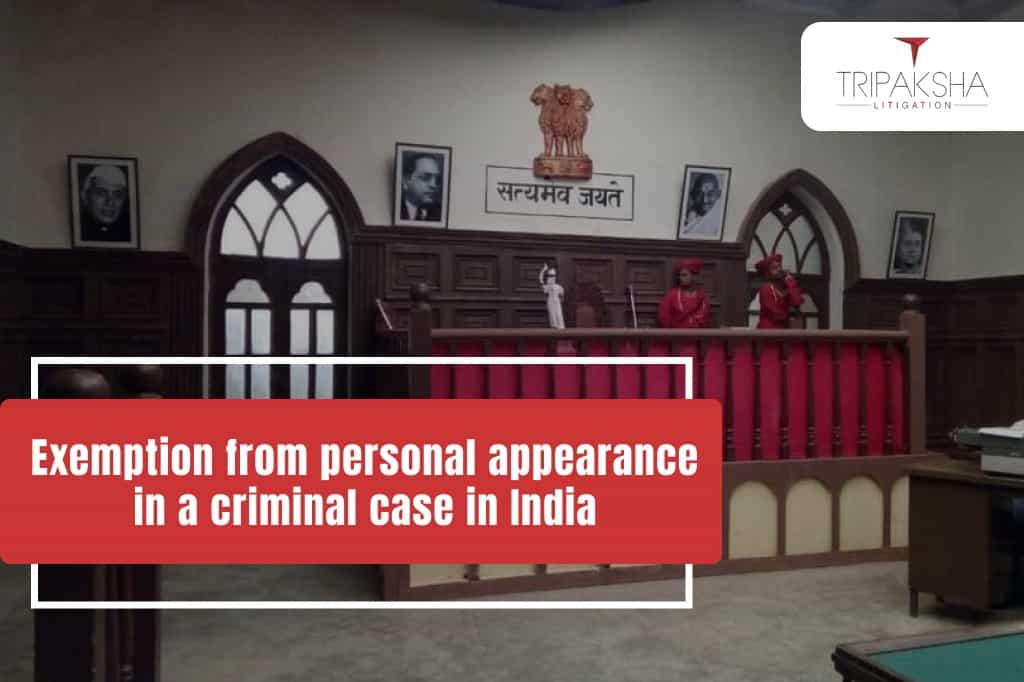In India, an accused person is required to attend all hearings in a criminal case in which they are involved, unless specifically exempted by the court. This is because the presence of the accused is necessary to ensure that they are aware of the charges against them and have the opportunity to defend themselves.
The Code of Criminal Procedure (CrPC) in India mandates that an accused person must be present in court during the trial, unless the court grants them exemption due to illness or any other valid reason. However, even in such cases, the accused person is required to be represented by a criminal lawyer.
If an accused person fails to appear in court without a valid reason, the court may issue a warrant for their arrest or declare them a proclaimed offender.
Section 205 of the Criminal Procedure Code (CrPC) deals with the exemption of an accused from attending court proceedings in certain situations. The section provides that a magistrate may, if he is satisfied that the personal attendance of the accused is not necessary, permit him to appear through his counsel.
The primary objective of this provision is to ensure that the accused is not subjected to unnecessary harassment, inconvenience or expense in attending court hearings. The section recognizes that the presence of the accused in court can be dispensed with in certain cases, such as when the accused is a woman or a child, or is suffering from an illness, or is required to attend to his or her business or employment.
The section also provides that the accused can apply to the court for exemption from personal appearance, and the court can either grant or reject the application, based on the facts and circumstances of the case. The court can also issue a summons or a warrant against the accused if he fails to appear in court despite being exempted from personal appearance.
However, it should be noted that the exemption from personal appearance does not mean that the accused is exempted from the trial proceedings. The accused still has to attend the trial and participate in the proceedings through his counsel. The section merely provides for the dispensation of personal appearance, which is not essential in all cases.
It is important to note that the discretion to exempt an accused from personal appearance is not absolute. The court must exercise its discretion judiciously and take into account the interests of justice, the nature of the offence, the stage of the proceedings, and the likelihood of the accused tampering with evidence or absconding. The court must ensure that the exemption granted is not misused by the accused or his counsel, and that it does not cause prejudice to the prosecution.
In conclusion
Section 205 of the CrPC is an important provision that recognizes the need to balance the interests of justice with the rights of the accused. The provision allows for the dispensation of personal appearance in certain situations, thereby reducing the hardship and inconvenience faced by the accused. However, the discretion to grant exemption must be exercised judiciously and with due regard to the interests of justice. The provision, therefore, plays a crucial role in ensuring that the administration of justice is fair, efficient, and effective.
You may contact me for consultation or advice by visiting Contact Us and Call us


best way to avoid court hearings.
One doubt please clarify. One lady 91 years bed ridden recently found she has been charged with NBW issued in LP case by a CJM court under section 138 of NI act.case is 17 years old she has not got summons earlier. The complainant is no more, What is the remedy,whether she is exempted by appear in court.Its a false case One person mis used the cheque
Through her legal representative or advocate, file an application before the concerned court to cancel the NBW, citing her age, bedridden condition, and lack of service of summons earlier.
Attach medical certificates or reports proving her health condition. For further discussion call on 7428871505 for appointment.